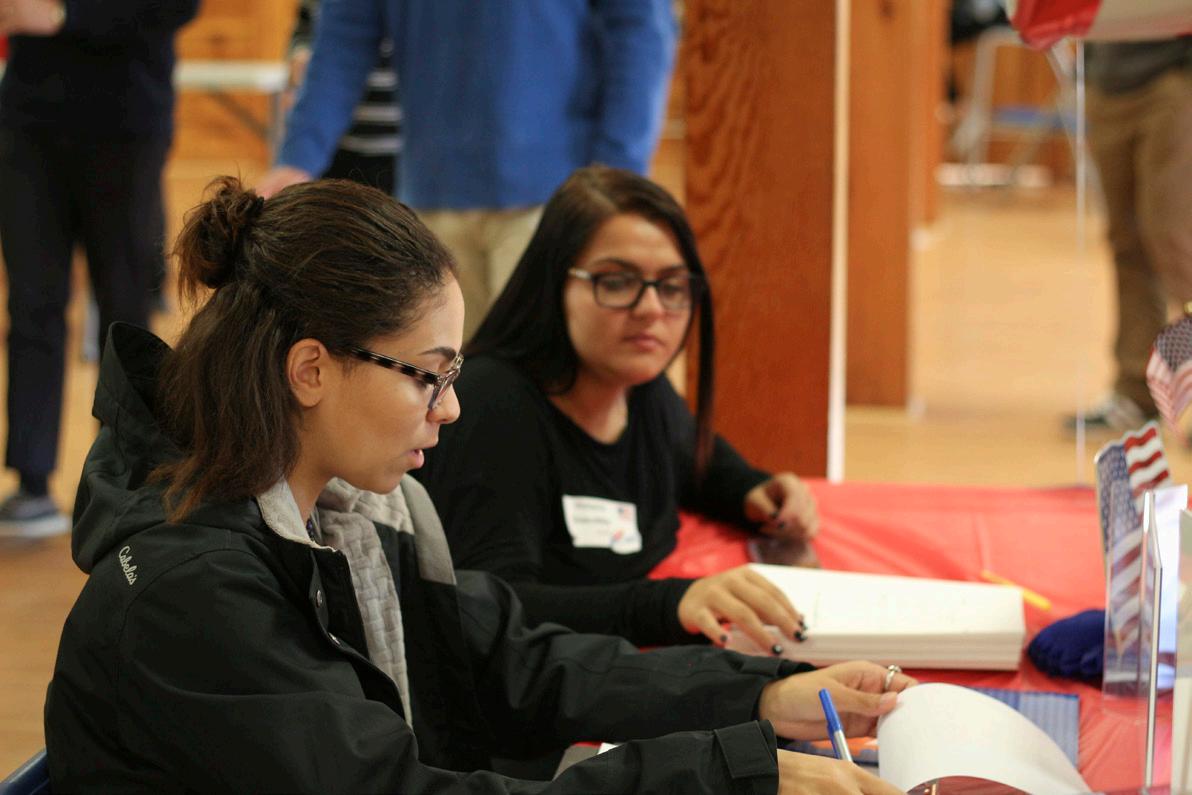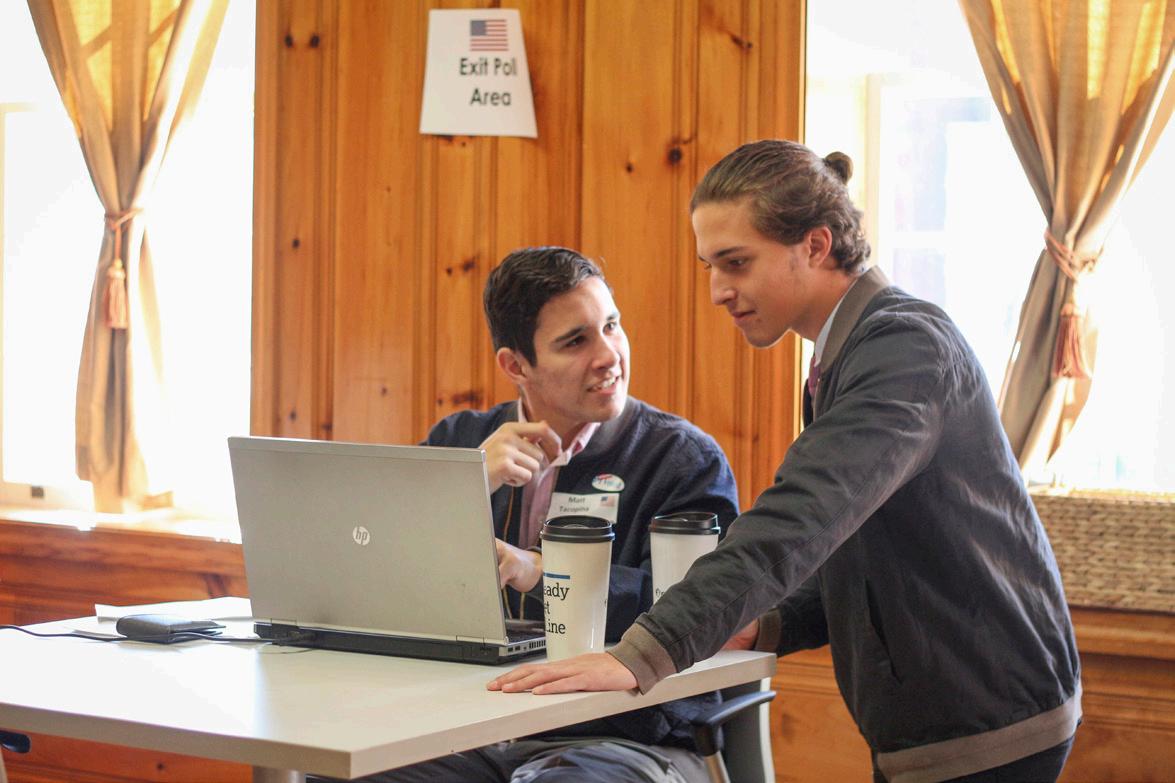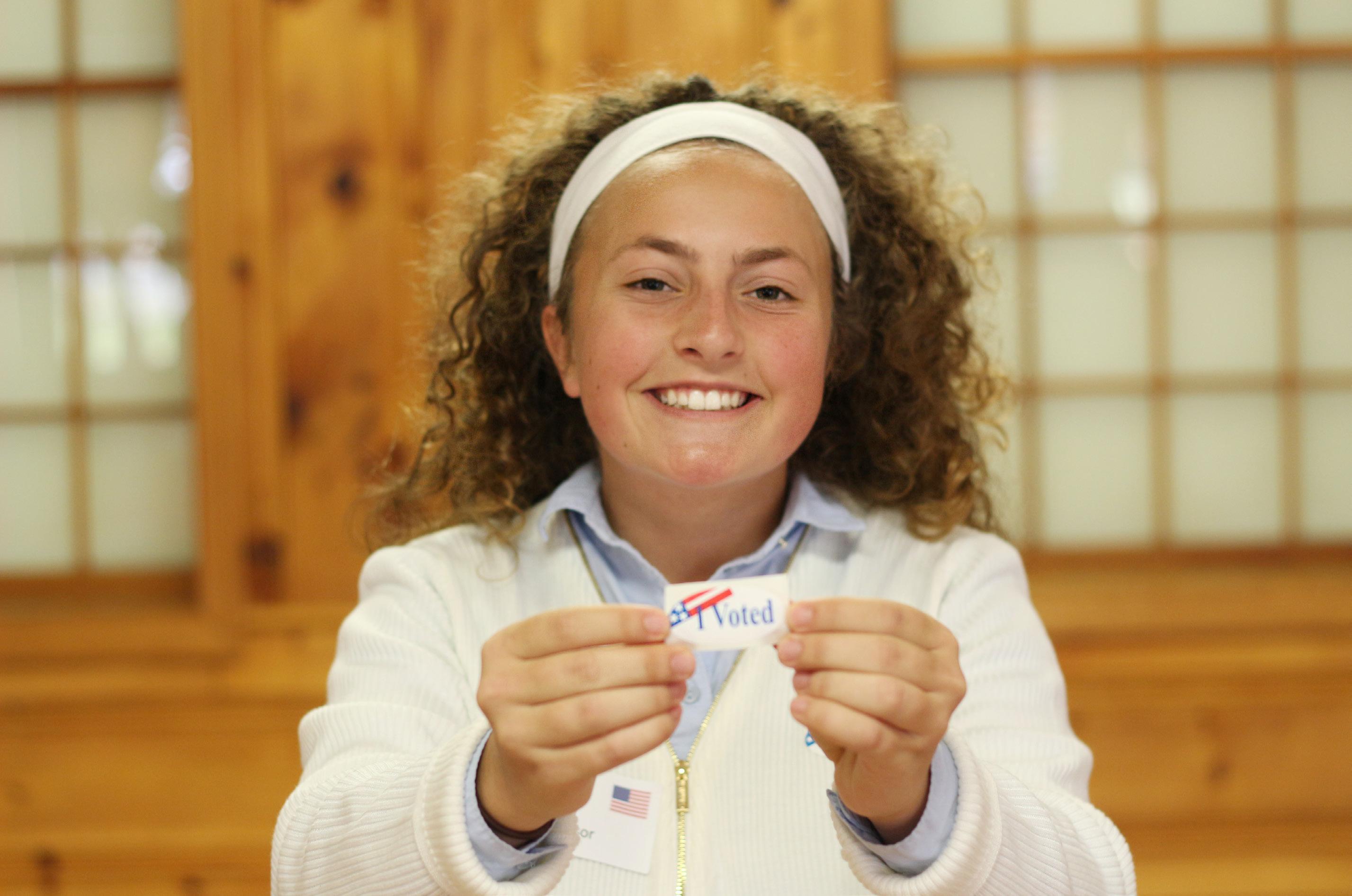
5 minute read
The Making of a Mock Election
In an election year, it was no surprise that History Teacher Christine Monahan wanted to bring the American voting experience to Cheshire Academy. “We’re an international school, and what a great opportunity for us to have students from all over the world participate in a model of the American electoral process,” she said. Thanks to Monahan’s inspiration, an effort to plan a Mock Election at Cheshire Academy was started.
A true teacher, Monahan didn’t want to be the driving force behind the entire effort though; it needed to have a student’s touch. Carly Fischer ’17 was that student. “When you have the political bug, you tend to gravitate toward others with it,” noted Monahan. “Carly seemed like a natural choice. She had the skill set and interest that would make her successful at managing a project like a Mock Election.”
As expected, Fischer rose to the challenge. “I’ve always been involved in politics with my family growing up, but I never had the opportunity to do something like this,” she said, noting that she might want to study political science in college.
With Fischer on board, the two got to work. The plan was to make the actual voting process as official as possible. Part of that included having students and faculty register to vote in advance. “If you don’t register, you can’t vote,” said Monahan. “It’s about responsibility. In most states you have to plan in advance. We wanted them to have the sense of being left out if they didn’t take the time to register early.” There were also no incentives to vote. "We want this to be authentic and real," said Fischer. "People vote because they care and want their voices heard, not because they get a bonus on their grade.”
An authentic ballot experience was also on the agenda. “Ideally we would use a Scantron type device,” noted Monahan, but that method of assessment isn’t used at Cheshire Academy. They began to research alternatives for tabulating the results of the election and found Zipgrade. Fischer agreed that this product, which turns any smartphone or tablet into a Scantron-like grading machine, could be the solution they needed. “It looked really efficient,” she said.
Knowing that Fischer and Monahan alone couldn’t coordinate this effort, Monahan’s two AP Government classes were added to the task force. Since understanding the election was already a key component of those classes, it made sense. However, Monahan noted that it was important to not influence her students with her own political opinions. “I had to be careful in how I taught, as I need to stay unbiased.” They spent time assessing the candidates’ strengths and concerns that voters might have about each of them. “You could really see some of our students grapple with their thoughts and allegiances to the different parties, and if they could continue to support their party’s candidate or not,” Monahan observed.

L-R: MATTHEW TACOPINA '17 AND OLEG LYUBIMOV '17
- CHRISTINE MONAHAN
Monahan noted that while many teachers around the nation shied away from the election, especially with the challenges of this year's controversial campaigns, others still wanted to really bring it to the classroom and share information. “The nature of this particular election has been challenging though,” she said. “But as the students get older, it becomes more appropriate for them to really delve into the details of the campaigns.”
For a while, they anticipated holding mock debates, with students taking on the roles of the candidates and hashing out the issues in front of other students. However, the idea had to be nixed. “Once the election became so polarizing and personally aggressive, it was hard to push students to endorse either side publicly,” said Fischer.
ELECTION DAY
The importance of election day is why Monahan and Fischer worked to create this event. “This whole Mock Election effort is especially important for upperclassmen like me,” Fischer said, pointing out that some Academy students are of age to vote in the actual election. “This experience is helping us understand how campaigns progress over time, how we assess candidates and what the results of an election mean to us. I’m really excited to see what the results are, since we have such a diverse community.

KARLY FISCHER '17
Early in the morning, before the mock polls officially opened at Cheshire Academy, Monahan, Fischer, and the AP Government students were busy preparing. They had already decorated the event room and set up registration tables, voting booths, and exit interview stations, plus, the bake sale station was filling up with freshly made sweets from faculty. The two AP Government classes took part in an on campus field trip, manning the polling station for the entire day. “It is pretty cool to see all the students come together, from all over the world,” said Monahan, as she looked around the fully staffed room. There were students at each station, welcoming voters and directing them through the process. “We switched up roles so students worked all the stations and rotated throughout the room,” added Monahan, which was part of ensuring everyone got the full experience of what it takes to organize an election.
“It really takes a village,” acknowledged Fischer. “From the outside, it might seem not complicated, but there are really so many variables that go into making sure everything goes smoothly. At the end of the day, if things don’t go well, it falls on us.”
Monahan noted that they were a little disappointed with the voter registration from the community, but acknowledged that they still held true to their “register in advance or you can’t vote” policy. By mid-day, just over 60 percent of those who registered to vote had visited the polls. By the end of the day, 82 percent of the registered Cheshire Academy voters had cast their ballots.
Once the votes were counted, Clinton took the presidency with 57 percent of the vote at the Academy’s Mock Election. While the Cheshire Academy election results differed from those the nation saw on November 8, 2016—Clinton received only 48 percent of the vote nationally—the voting experience that our students had was similar, giving all students the opportunity for their voices to be heard.







